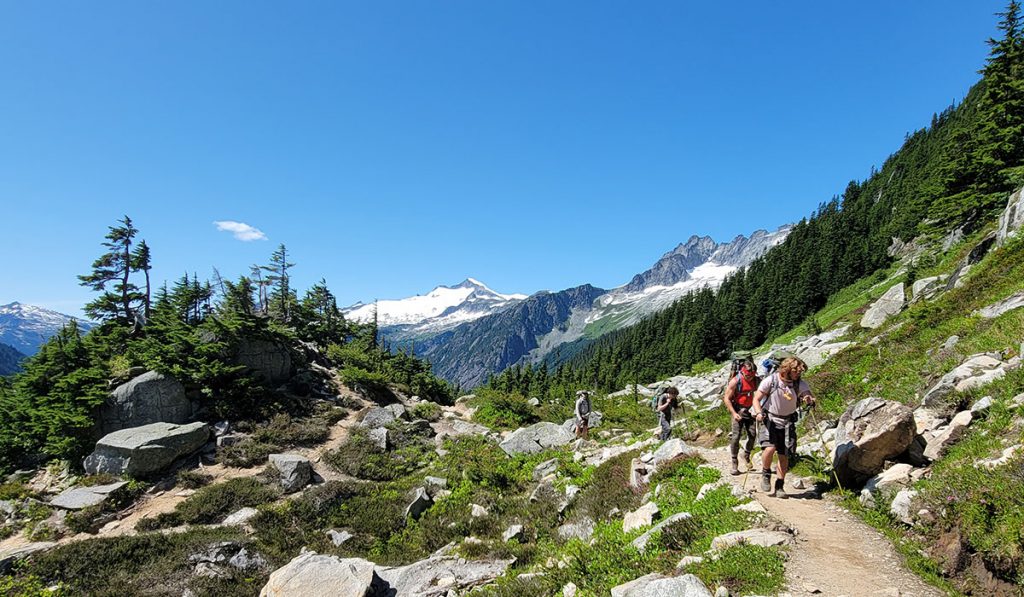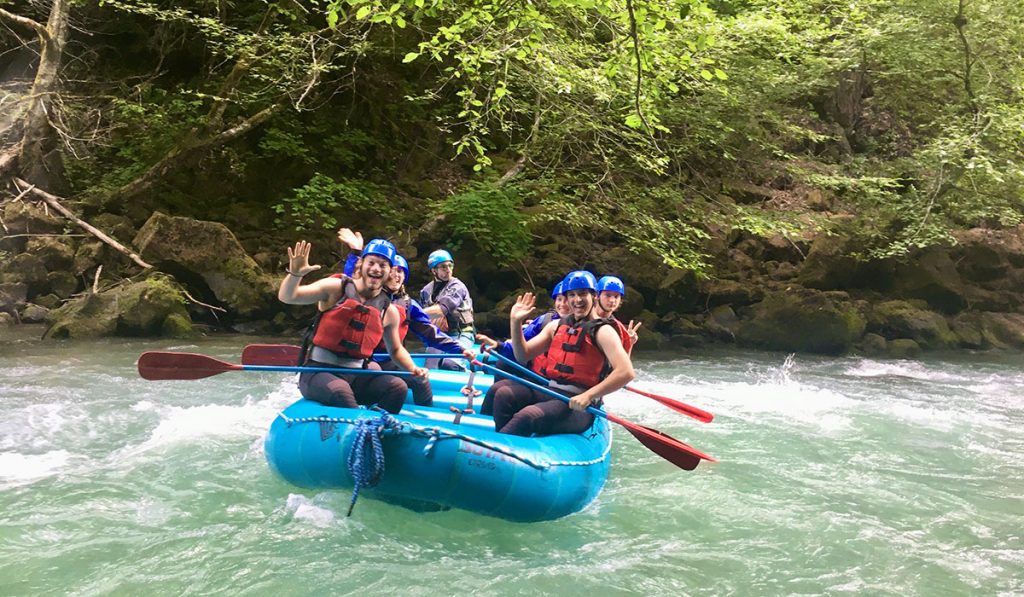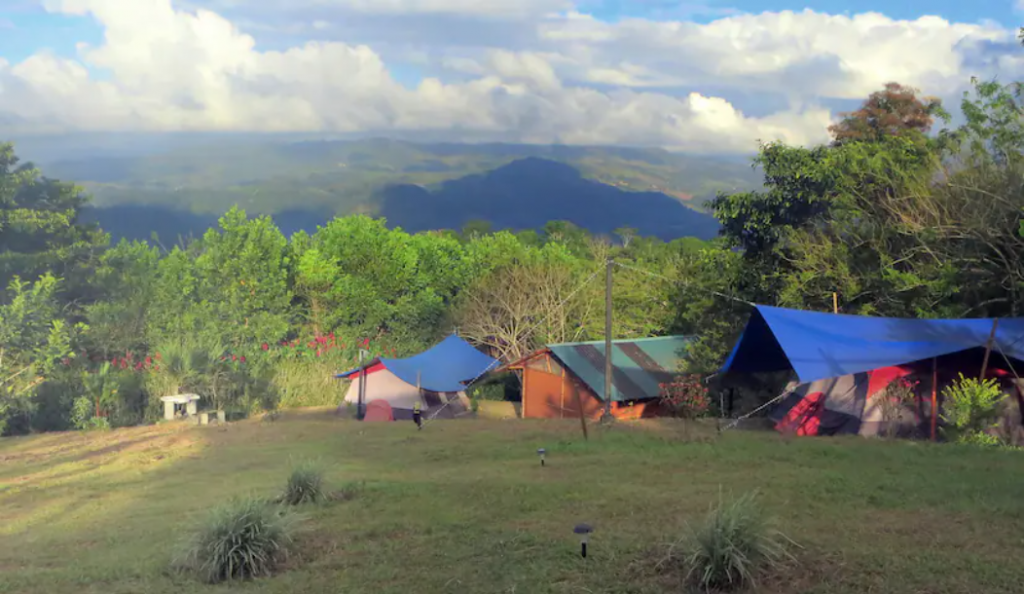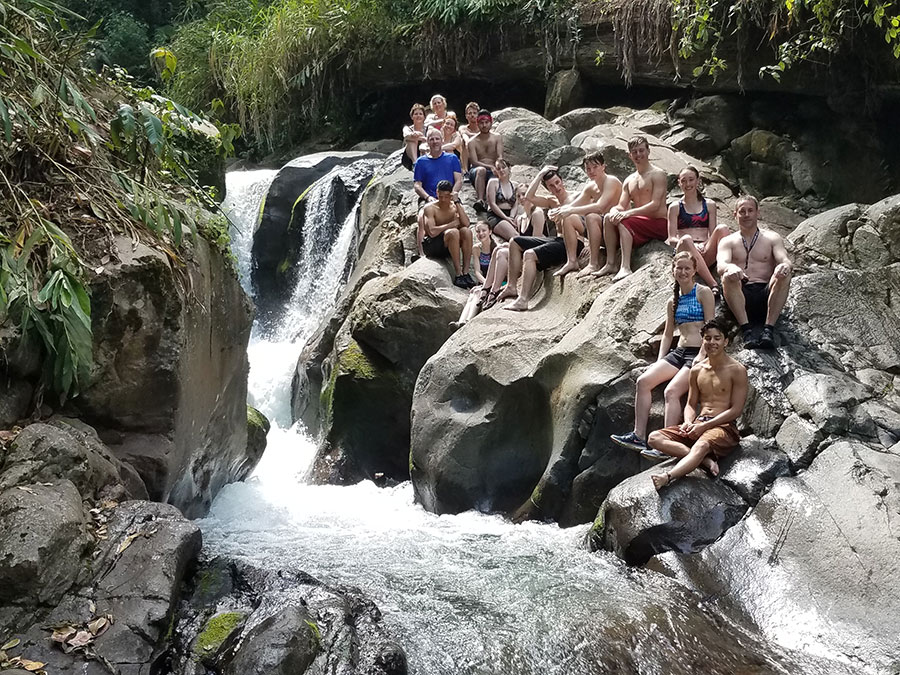
Since its inception in 1993, Adventure Treks has provided education, growth, and unforgettable memories for more than 20,000 middle and high schoolers seeking fun and challenging outdoor programs. The philosophy behind Adventure Treks summer programs remains steadfast: to foster inclusive communities through the beautiful outdoors and create meaningful growth opportunities for teens.
Now, with the launch of the Leadership Adventure Gap Semester (LAS) in fall 2020, Adventure Treks is striving to create more opportunities for both new and former students ages 18–20.
Why take a gap semester or gap year?
The outcomes of deferring your first year of college have long been studied and continue to produce benefits for young adults. In a 2020 study by the Gap Year Association, gap year students overwhelmingly reported that their program:
- Helped them learn how to interact with people from different backgrounds
- Increased their maturity and academic motivation
- Improved their self-confidence
- Gave them a competitive advantage when applying to school or jobs
- And inspired them to volunteer more, among many other benefits

In an earlier 2015 survey, respondents noted the following as their most significant outcomes from their gap program:
- Helped them develop as a person
- Allowed time for personal reflection
- Helped develop communication skills and a greater understanding for other cultures
- Helped them acquire skills to be successful in their careers
Worried about academic performance or falling behind? Don’t be. A Middlebury College study showed that their students who took a gap year overperformed in college, and that the effect lasted over all four years.
Want to read more about the benefits of gap years? Here are a few recent articles:
- ‘Exactly What I Needed’: Gap Year Students Reflect on Year Away from Harvard, The Harvard Crimson
- How a Gap Year Prepares Students for College, U.S. News & World Report
- The Pros & Cons of Taking a Gap Year, Go Overseas
- Here’s Every Reason You Should Take A Gap Year Before College, Forbes

What makes the Adventure Treks gap program so unique?
On-site instruction
Adventure Treks’ spring and fall semesters are largely basecamp-based, meaning students won’t be constantly traveling throughout their program. The spring semester begins in Costa Rica, where students will live for two weeks in an eco-lodge as they learn and improve whitewater kayaking, rafting, and canoeing skills. Then they’ll transition to western North Carolina, where they’ll begin curriculum on mountain biking, rock climbing, and backpacking, while continuing their paddling education. The fall semester begins and ends in western North Carolina.
This is a unique opportunity for gap students to live and learn in an exciting and adventurous environment; more important, it gives students a space to call home.
The summer semester is expedition-based, giving students the opportunity to experience and explore different parts of the Pacific Northwest.
Academic credit
Spring and fall LAS students will have the opportunity to earn up to 14 hours of academic credit through Western Carolina University (WCU). On the shorter summer LAS course, students will have the opportunity to earn up to 10 hours of credit.
This provides LAS students with a strong foundation for their college career, no matter what degree they pursue.
Academic course info through WCU (find in-depth descriptions here):
- PRM 200: Introduction to Rock Climbing (2 credits)
- PRM 357: Wilderness First Responder (4 credits)
- PRM 224: Survey of Outdoor Adventure Activities (4 credits)
- PRM 254: Introduction to Outdoor Pursuits (4 credits)

Multiple medical and skill certifications
Adventure Treks students will have the opportunity to become wilderness first responders—this is the industry standard certification for anyone looking to work in the outdoors, and a fantastic opportunity to have an advanced understanding of wilderness medicine.
For the spring and fall semester, students will also take a two-day swift water rescue course—valuable training for navigating moving water, learning about hydrology and river classifications, and boat handling and rescue systems.
Local, meaningful service projects and place-based learning
In spring and fall, students’ service opportunities will focus on the surrounding areas in which they recreate. Our service learning projects foster continued care for our outdoor community and give back where we can. Projects range from restoring and maintaining trails to facilitating river clean-ups.
Our curriculum also focuses on understanding the long history of the Cherokee Nation. This fosters a learning environment where students are better connected with the area, and deepens the meaning behind the service projects centered around the land that surrounds them.
“Real world” skills
Adventure Treks students engage in hands-on activities that teach the “real world” skills missing in academic life, including cooking; plumbing; auto maintenance; basic carpentry and electrical work; personal finance and budgeting; resume-building; actively leading and following; and giving and receiving constructive feedback. These skills bolster young adults’ independence, self-sufficiency, and confidence when starting their lives outside their childhood home.
These life skills workshops are taught in small groups, which allows students to be hands-on and get personal attention as they learn.
Interested in an Adventure Treks gap semester program? Learn more about each of our programs below!
- Spring 2022: Begins in Costa Rica, then basecamps in western NC
- Summer 2022: Travels throughout the Pacific Northwest
- Fall 2022: Basecamps in western NC